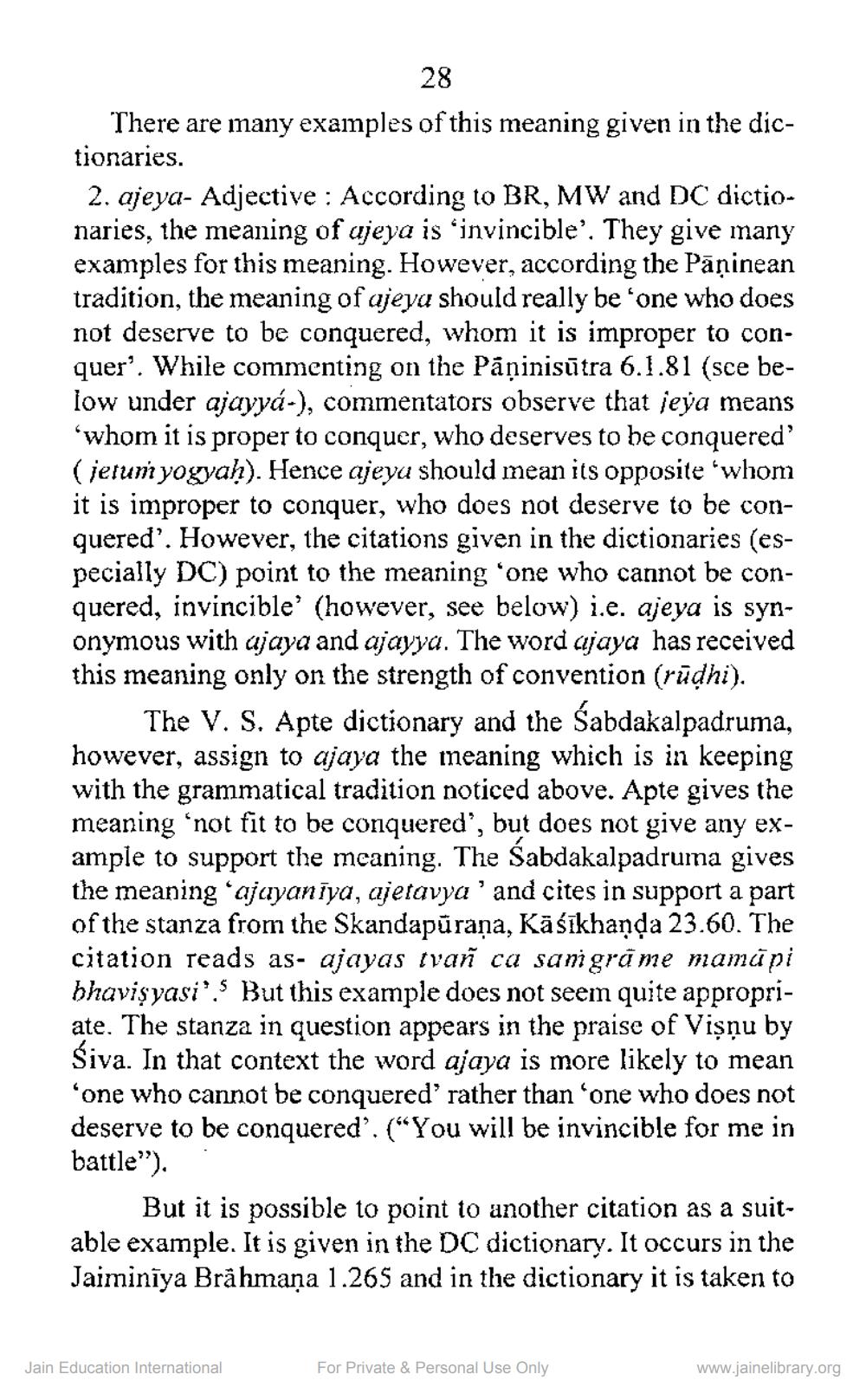________________
28
There are many examples of this meaning given in the dictionaries.
2. ajeya- Adjective : According to BR, MW and DC dictionaries, the meaning of ajeya is 'invincible'. They give many examples for this meaning. However, according the Pāṇinean tradition, the meaning of ajeya should really be 'one who does not deserve to be conquered, whom it is improper to conquer’. While commenting on the Pāṇinisūtra 6.1.81 (sce below under ajayya-), commentators observe that jeya means 'whom it is proper to conquer, who deserves to be conquered' (jetun yogyah). Hence ajeyu should mean its opposite 'whom it is improper to conquer, who does not deserve to be conquered'. However, the citations given in the dictionaries (especially DC) point to the meaning 'one who cannot be conquered, invincible' (however, see below) i.e. ajeya is synonymous with ajaya and ajayya. The word ajaya has received this meaning only on the strength of convention (rūdhi).
The V. S. Apte dictionary and the Śabdakalpadruma, however, assign to ajaya the meaning which is in keeping with the grammatical tradition noticed above. Apte gives the meaning ‘not fit to be conquered', but does not give any example to support the meaning. The Sabdakalpadrunna gives the meaning 'ajayanīya, ajetavya and cites in support a part of the stanza from the Skandapurana, Kāśikhanda 23.60. The citation reads as- ajayas (vañ ca sanigrāme mamūpi bhavişyasi'. But this example does not seem quite appropriate. The stanza in question appears in the praise of Vişņu by Siva. In that context the word ajaya is more likely to mean 'one who cannot be conquered' rather than one who does not deserve to be conquered'. ("You will be invincible for me in battle").
But it is possible to point to another citation as a suitable example. It is given in the DC dictionary. It occurs in the Jaiminiya Brâhmaņa 1.265 and in the dictionary it is taken to
Jain Education International
For Private & Personal Use Only
www.jainelibrary.org




